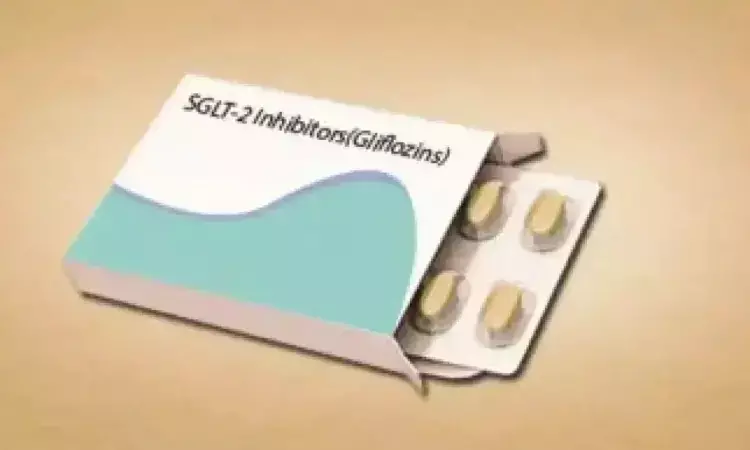- Home
- Medical news & Guidelines
- Anesthesiology
- Cardiology and CTVS
- Critical Care
- Dentistry
- Dermatology
- Diabetes and Endocrinology
- ENT
- Gastroenterology
- Medicine
- Nephrology
- Neurology
- Obstretics-Gynaecology
- Oncology
- Ophthalmology
- Orthopaedics
- Pediatrics-Neonatology
- Psychiatry
- Pulmonology
- Radiology
- Surgery
- Urology
- Laboratory Medicine
- Diet
- Nursing
- Paramedical
- Physiotherapy
- Health news
- Fact Check
- Bone Health Fact Check
- Brain Health Fact Check
- Cancer Related Fact Check
- Child Care Fact Check
- Dental and oral health fact check
- Diabetes and metabolic health fact check
- Diet and Nutrition Fact Check
- Eye and ENT Care Fact Check
- Fitness fact check
- Gut health fact check
- Heart health fact check
- Kidney health fact check
- Medical education fact check
- Men's health fact check
- Respiratory fact check
- Skin and hair care fact check
- Vaccine and Immunization fact check
- Women's health fact check
- AYUSH
- State News
- Andaman and Nicobar Islands
- Andhra Pradesh
- Arunachal Pradesh
- Assam
- Bihar
- Chandigarh
- Chattisgarh
- Dadra and Nagar Haveli
- Daman and Diu
- Delhi
- Goa
- Gujarat
- Haryana
- Himachal Pradesh
- Jammu & Kashmir
- Jharkhand
- Karnataka
- Kerala
- Ladakh
- Lakshadweep
- Madhya Pradesh
- Maharashtra
- Manipur
- Meghalaya
- Mizoram
- Nagaland
- Odisha
- Puducherry
- Punjab
- Rajasthan
- Sikkim
- Tamil Nadu
- Telangana
- Tripura
- Uttar Pradesh
- Uttrakhand
- West Bengal
- Medical Education
- Industry
SGLT2 inhibitors significantly reduce inflammatory markers like IL-6 alongside blood sugar control

Iran: A recent meta-analysis and systematic review reveals significantly reduced levels of the pro-inflammatory biomarker interleukin-6 (IL-6) with the use of sodium-glucose co-transporter-2 (SGLT2) inhibitors with HbA1c as the only marker impacting such reduction.
According to the study, the anti-inflammatory effect of SGLT2 inhibitors supports their broader use for addressing diabetic complications related to inflammatory responses. The findings were published online in BMC Endocrine Disorders on November 24, 2023.
Previous studies have described the critical role of low-grade chronic inflammation in diabetes in the development of renal and cardiovascular complications. SGLT2 inhibitors are recognized as protective agents for cardio-renal complications. IL-6 is shown to be positively associated with the pathophysiology of metabolic-related pathologies. Sepehr Gohari, Zanjan University of Medical Sciences, Zanjan, Iran, and colleagues aimed to investigate the effect of SGLT2 inhibitors on blood IL-6 concentration in randomized controlled trials (RCTs).
For this purpose, the researchers systematically searched the online databases up to November 1, 2023. The eligible studies were RCTs having an adult population that had provided blood IL-6 for control and intervention groups. Study quality was assessed using the Cochrane risk-of-bias tool.
Eighteen studies comprising 5311 patients (49,7% men) were included. Of these, 3222 and 2052 patients were in the intervention and control arm, respectively. The study durations ranged from 8 to 52 weeks.
Based on the research, the authors made the following observations:
- The pooled analysis showed a significant association between the use of SGLT2 inhibitors and lower IL-6 levels (standardized mean difference (SMD) = -1.04).
- Dapagliflozin had a higher IL-6-lowering effect (SMD = -1.30) than empagliflozin or canagliflozin.
- Sub-group analysis of control groups (SMD = -0.58 and -1.35 for the placebo and active control sub-groups, respectively) and duration of interventions (SMD = -0.78 and -1.20 for the study duration of ≤ 12 and > 12 weeks, respectively) did not change the results.
- Meta-regression analysis showed a significant correlation between the level of HbA1c and IL-6-lowering efficacy of SGLT2 inhibitors.
"In this meta-analysis and systematic review, we have provided robust evidence that IL-6 is significantly reduced by SGLT2 inhibitors with HbA1c as the only marker influencing such reduction," the researchers wrote.
They found that dapagliflozin use led to a greater decrease in IL-6 levels compared to using either canagliflozin or empagliflozin. The importance of these findings could be due to the cardiorenal protective properties of SGLT2 inhibitors.
"These findings arguably suggest that use of SGLT2 inhibitors could be considered in other inflammatory-related pathologies in patients with and without type 2 diabetes," they concluded.
The main limitation was the marked heterogeneity across studies. Although the authors explored the source of heterogeneity through subgroup analysis and meta-regression, HbA1c at baseline was the only factor identified to explain the heterogeneity.
Reference:
Gohari, S., Ismail-Beigi, F., Mahjani, M. et al. The effect of sodium-glucose co-transporter-2 (SGLT2) inhibitors on blood interleukin-6 concentration: a systematic review and meta-analysis of randomized controlled trials. BMC Endocr Disord 23, 257 (2023). https://doi.org/10.1186/s12902-023-01512-1
Dr Kamal Kant Kohli-MBBS, DTCD- a chest specialist with more than 30 years of practice and a flair for writing clinical articles, Dr Kamal Kant Kohli joined Medical Dialogues as a Chief Editor of Medical News. Besides writing articles, as an editor, he proofreads and verifies all the medical content published on Medical Dialogues including those coming from journals, studies,medical conferences,guidelines etc. Email: drkohli@medicaldialogues.in. Contact no. 011-43720751


